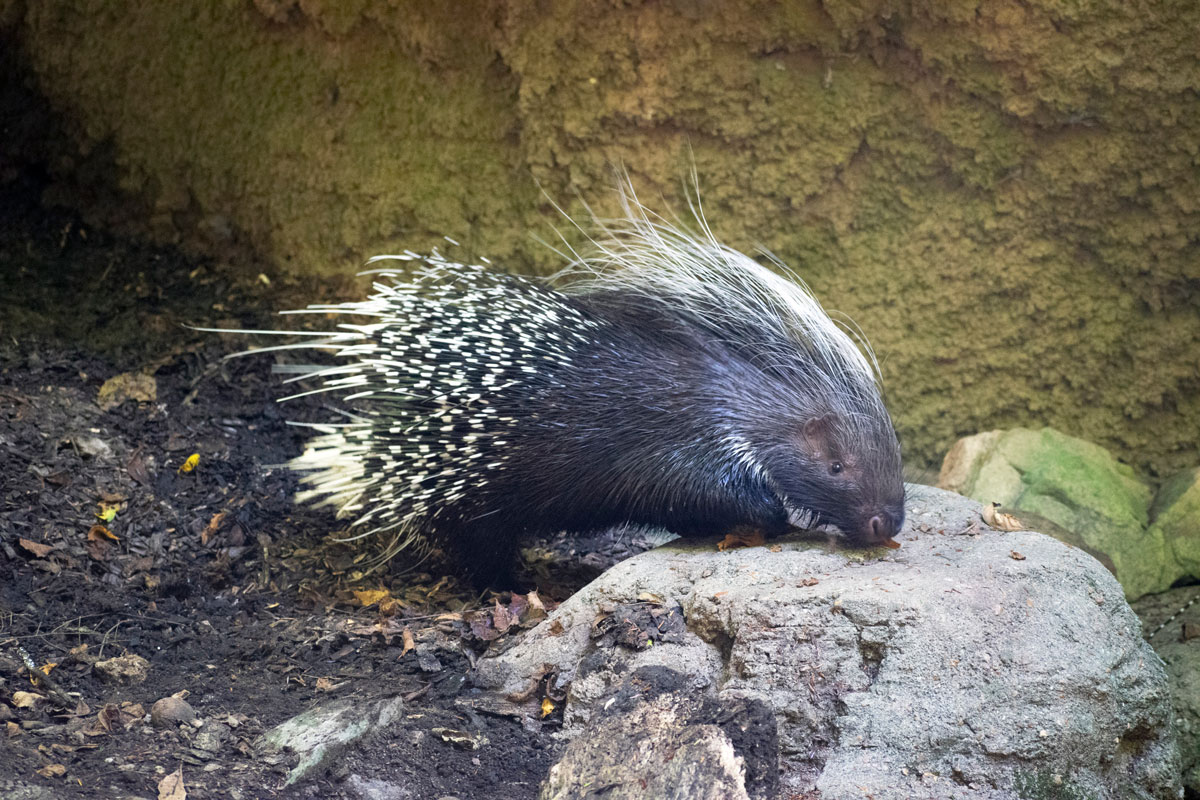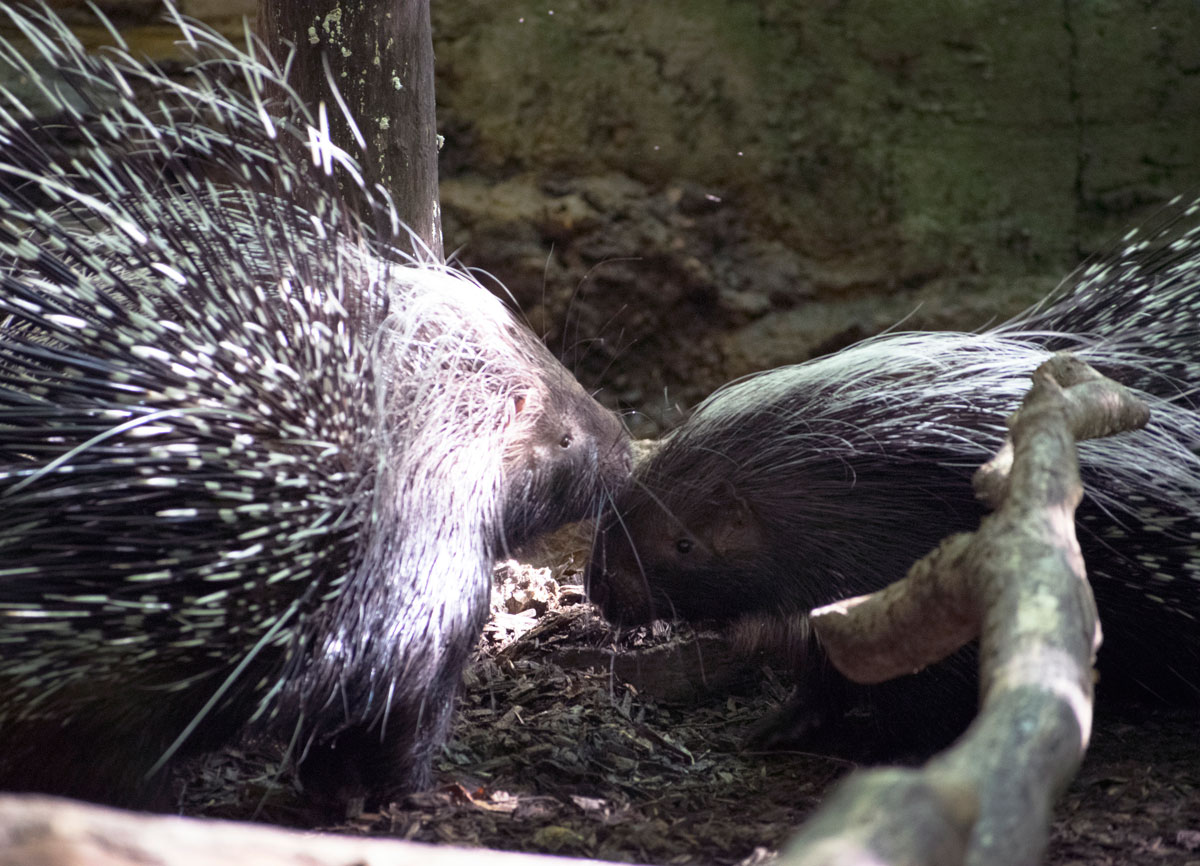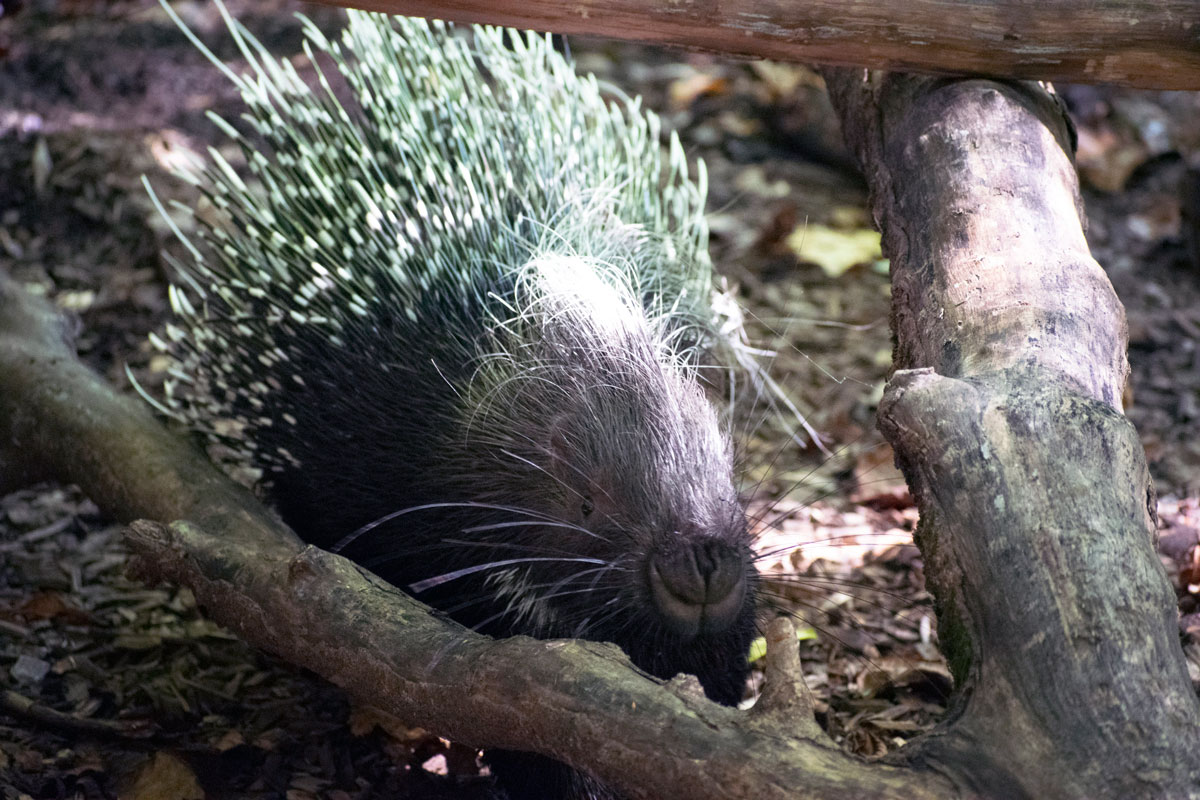
Nashville Zoo is pleased to announce the arrival of our new female Cape porcupine.
Mkali, meaning “fierce and bright” in Swahili, was born on Feb. 24, 2019 at the San Diego Zoo. Mkali joins the Zoo’s current 6-year-old male Cape porcupine, Jake Quyllenhaal.
Other than her smaller stature, keepers identify Mkali by looking for a thick, white stripe under her chin. Mkali's stripe is much larger and more defined than Jake's.

“Mkali and Jake hit it off right away and she is getting more and more comfortable in her new exhibit and routine by the day,” said Collin Guidry, Nashville Zoo Contact Area Keeper.
Jake regularly accompanies the animal keepers as he walks along the public walkways, so our guests have an opportunity to meet him face to face.
Breeding maturity for female Cape porcupines is about 2 years old with pregnancy lasting about five months, although pregnancy can happen before the female turns 2 years old. Cape porcupines typically have two litters a year and baby porcupines are called "porcupettes.”

“We are very excited for our community to get a closer look and a better understanding of these animals and animals like them,” Guidry said. “We hope everyone will get a chance to see Jake and Mkali and, in the future, their offspring.”
Mkali was brought to Nashville Zoo about a month ago on the breeding recommendation of the Cape Porcupine Species Survival Plan® (SSP). Nashville Zoo is an active member of the SSP for this species and is ensuring the captive population of this species remains young and healthy.
Cape porcupines (Hystrix africaeaustralis) are the largest species of porcupine and are the largest rodent found in southern Africa. Their foraging habits play an important role in maintaining healthy plant communities throughout their range, which is important for the survival of many African species. Their teeth never stop growing, so they love chewing on logs and other hard surfaces to file their teeth down and keep them at comfortable lengths. They are generally nocturnal, so you can almost always find them sleeping in their den. Despite rumors, porcupines cannot shoot their quills as a defense.


